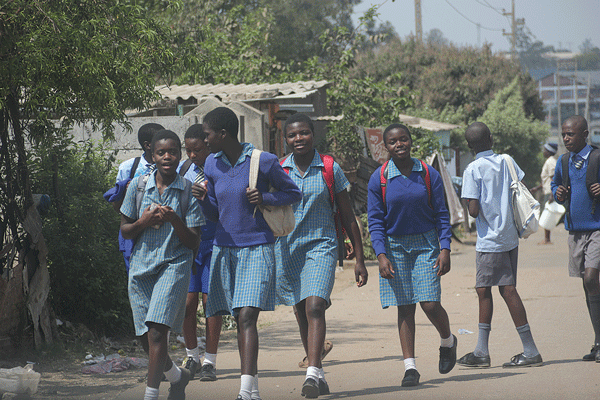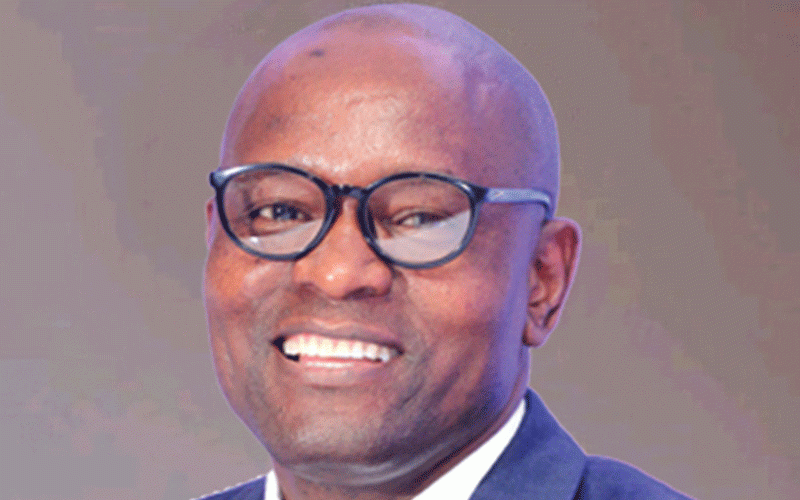
Africa has a 12% saving-account penetration rate for youth —the least in the world. There are a myriad of challenges to child and youth financial inclusion in Africa. These include cultural barriers, legal restrictions, inadequate child and youth-friendly financial services, long distance to access points, low education, unemployment, high transaction costs and negative stereotypes about youth.
BY KUDZAI GOREMUSANDU

Furthermore, legal and regulatory barriers create significant obstacles for providing the youth with financial services. Some of the legal and regulatory barriers that the youth face when accessing financial services include minimum age, limits to open and manage an account and the need to provide identification documents. Financial inclusion refers to all initiatives that make formal financial services available, accessible and affordable to all segments of the population
This is particularly problematic in many parts of Africa, where such documents are not readily available. It must be noted that, young people are significantly more likely to maintain a relationship with financial institutions and have greater financial assets later in life if they own a savings account earlier in life.
Policy innovations that make savings accounts widely available and easily accessible to children are valuable tools for increased savings behaviour that can continue into adulthood and lead to improved financial outcomes over the long-term.
Additionally, access to capital for young people can promote youth entrepreneurship and sustainable livelihoods.
The current global youth population of 1,2 billion is the largest in history and represents approximately 18% of the world’s population. More than 80% of the world’s youth live in Africa, Asia and Oceania, where employment in agriculture comprises at least 35% of total employment. Seventeen percent of the global youth population lives in Africa. One in five youths lives on less than $1 a day.
Approximately 64% of African youth live in countries where at least one third of the population lives on less than $2 a day.
- Chamisa under fire over US$120K donation
- Mavhunga puts DeMbare into Chibuku quarterfinals
- Pension funds bet on Cabora Bassa oilfields
- Councils defy govt fire tender directive
Keep Reading
The quality of education for youth in many developing countries is very poor with high teacher-student ratios and high drop-out rates, particularly for girls in the rural areas.
Very few youth are able to complete their education due to poverty and insufficient public institutions for tertiary education. As a result, many enter into the work force at a young age. In developing countries roughly 20 to 50% of youth aged 15-19 and 50 to 80% of youth aged 20-24 are working.
Higher rates, such as those in Africa (for example, about 30 to 80% for youth aged 15-19 and 50 to 90% for youth aged 20-24) may indicate limited education opportunities and the need for young people in these countries to contribute to family income.
Importance of financial inclusion
Financial inclusion is, therefore, necessary to ensure that economic growth performance is inclusive and sustained. Financial inclusion refers to all initiatives that make formal financial services available, accessible and affordable to all segments of the population.
This requires particular attention to specific portions of the population that have been historically excluded from the formal financial sector either because of their income level and volatility, gender, location, type of activity, or level of financial literacy.
In so doing, there is need to harness the untapped potential of those individuals and businesses currently excluded from the formal financial sector or underserved, and enable them to develop their capacity, strengthen their human and physical capital, engage in income-generating activities, and manage risks associated with their livelihoods.
Financial inclusion goes beyond improved access to credit to encompass enhanced access to savings and risk mitigation products, a well-functioning financial infrastructure that allows individuals and companies to engage more actively in the economy, while protecting users’ rights.
How to maximise financial stability and inclusion
Achieving greater financial inclusion and maintaining financial stability are mutually reinforcing policy compulsions and the challenge is how to ensure both, while exploiting the synergies between the two objectives.
A possible answer arguably lies in a facilitative regulatory environment, which ensures that the formal financial system delivers affordable financial services to those excluded from the financial system with greater efficiency without compromising on the acceptable levels of safety and soundness.
First, for financial inclusion to be expanded through financial regulation, market uptake is critical. Passing enabling regulation does not guarantee increased access. Current research on the financial behaviour of the poor shows they already employ informal financial tools in a sophisticated way.
Second, in a market-based economy, financial inclusion depends ultimately on the ability of financial institutions to develop sustainable business models that enable them to meet the needs of poor customers at scale. The role of the regulator is to shape incentives so that financial services providers can efficiently respond to the needs of their customers. The need to bring financial services closer to poor consumers is already giving rise to new low-cost distribution models in a number of African countries.
Some financial institutions in Morocco and South Africa have had success adapting traditional branch-based approaches to serve the segment. However, alternative distribution models also hold great promise, in particular correspondent banking and mobile banking such as in Kenya and Zimbabwe.
Kudzai Goremusandu is a strategic, innovative, dynamic, goal getter, enterprising management and leadership consultant. He is the founder of Africa Leadership Insights Institute. Kudzai holds an award for effective media communication from the University of Zimbabwe. Kudzai is based in Harare, Zimbabwe. He can be contacted at [email protected]











